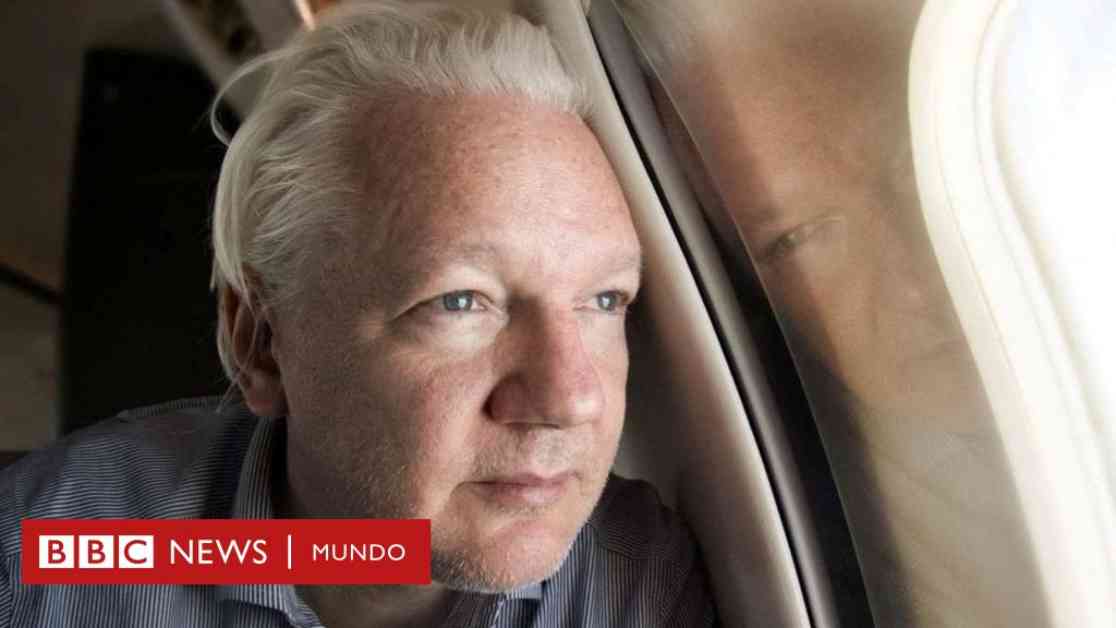Julian Assange, the founder of WikiLeaks, was released after a decade-long legal battle. In a deal with the U.S. government, Assange pleaded guilty to a charge of espionage in a federal court in Saipan, the capital of the Northern Mariana Islands, a U.S. territory in the South Pacific.
The judge acknowledged the nearly 5 years Assange spent imprisoned in the UK, allowing him to regain his freedom. Assange told the court that when he published classified files in 2010, he believed he was protected by the First Amendment of the U.S. Constitution, which covers freedom of the press.
His lawyer, Barry Pollack, stated that WikiLeaks’ work will continue and Assange will advocate for freedom of expression and government transparency. Assange left the court without making any statements and is expected to arrive in Canberra, Australia, his home country, in the coming hours.
Assange reached an agreement with U.S. authorities, allowing him to plead guilty to violating the Espionage Act. Originally facing 18 charges, mostly under the Espionage Act, for publishing confidential U.S. military documents related to the wars in Iraq and Afghanistan in 2010, Assange denied the allegations, claiming it was part of his journalistic work.
In the recent deal, Assange only responded to one accusation. Although prosecutors recommended a 62-month sentence, he won’t serve time in a U.S. prison as he will be credited for the 5 years spent in UK custody. If found guilty of all 18 original charges, he could have faced up to 175 years in prison.
Assange chose to present his guilty plea in Saipan due to his distrust of the U.S. government, fearing for his safety. The location’s proximity to Australia also played a role in the decision. The agreement was reached after global campaigning and negotiations with the U.S. Department of Justice.
The focus now shifts to Assange reuniting with his family, with efforts underway to seek a pardon for him. His wife, Stella Assange, emphasized the seriousness of the Espionage Act prosecution for journalists worldwide. Any future pardon would need to be granted by the U.S. President.
In conclusion, Assange’s release marks the end of a long legal battle and highlights the importance of press freedom and government transparency. The global effort to secure his freedom reflects the ongoing challenges faced by journalists in the pursuit of truth and accountability.





